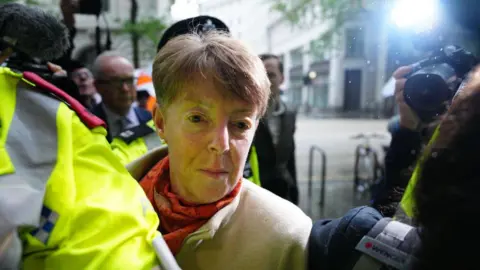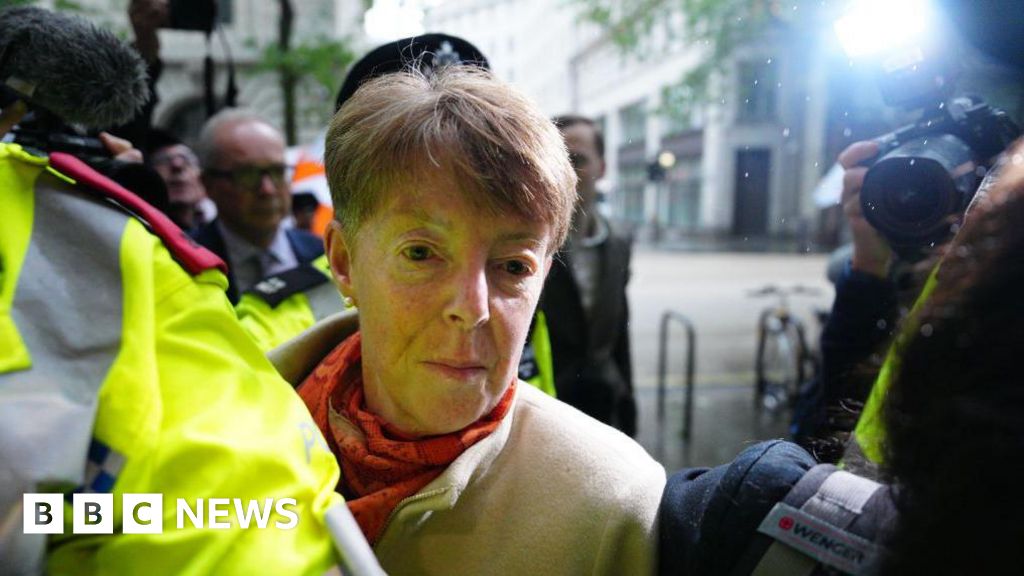 Getty Images
Getty ImagesGovernment officials weighed up sacking Paula Vennells as the Post Office’s chief executive in 2014 some five years before she resigned, an inquiry has heard.
According to internal government documents revealed at the long-running inquiry into the Horizon scandal, they had concerns about whether she was the right person to lead the group.
One issue was the perception that she was “unable to work with personalities that provide robust challenge to her”.
Alice Perkins, who chaired the Post Office at the time and faced a second day of questioning by lawyers on Thursday, denied that Ms Vennells had surrounded herself with “yes-men and yes-women”.
But she admitted that she herself started to have doubts in 2014 about Ms Vennells’ ability to lead the Post Office, which is owned by the government.
Ms Vennells continued as chief executive until 2019 during which time she received bonuses. She was subsequently awarded a CBE “for services to the Post Office and to charity”.
She handed the CBE back earlier this year before being formally stripped of the honour.
The officials wrote in February 2014 that “advice from the recent annual review suggested that the [Post Office] team give careful consideration to the continued suitability of Paula Vennells as chief executive”.
“There is a general consensus that Paula is no longer the right person to lead [the Post Office], but justification is anecdotal,” they wrote.
The documents revealed that officials had a number of concerns about Ms Vennells, including that she had not managed to grow Post Office revenue in line with a 2010 plan.
Ms Perkins said it was not her view that Ms Vennells was averse to being challenged, but added that there had been “some tension” between Ms Vennells and Susan Barton, who was the Post Office’s strategy director at the time.
Lead counsel for the inquiry, Jason Beer KC, asked whether Ms Vennells “preferred to have yes-men and yes-women around her, surrounding herself with a coterie of trusted lieutenants: [such as executives] Mark Davies, Angela van den Bogerd, [and] Lesley Sewell?”
Ms Perkins replied: “I don’t think that would be a fair characterisation.”
Commenting on the internal government documents discussing Ms Vennells’ future, Ms Perkins told the inquiry that they were “complete news” to her.
But she said: “In this period in 2014, I did start, and I wasn’t alone in this, to have reservations about Paula’s ability to lead the Post Office in the circumstances which it found itself in.”
This included Ms Vennells’ grip on issues including the Horizon IT system.
From 1999 to 2015 hundreds of sub-postmasters were prosecuted for offences such as fraud and false accounting on the strength of faulty Horizon data.
Ms Perkins said she had concerns a decade ago that Ms Vennells was “relying too much” on her executive colleagues for both IT and legal knowledge and there was “too much passing on of other people’s views” when she talked to the board.
“What she was relying on were words that other people had written for her, rather than her own words,” Ms Perkins said.
The Post Office operates as a private company, but is wholly owned by the government.

